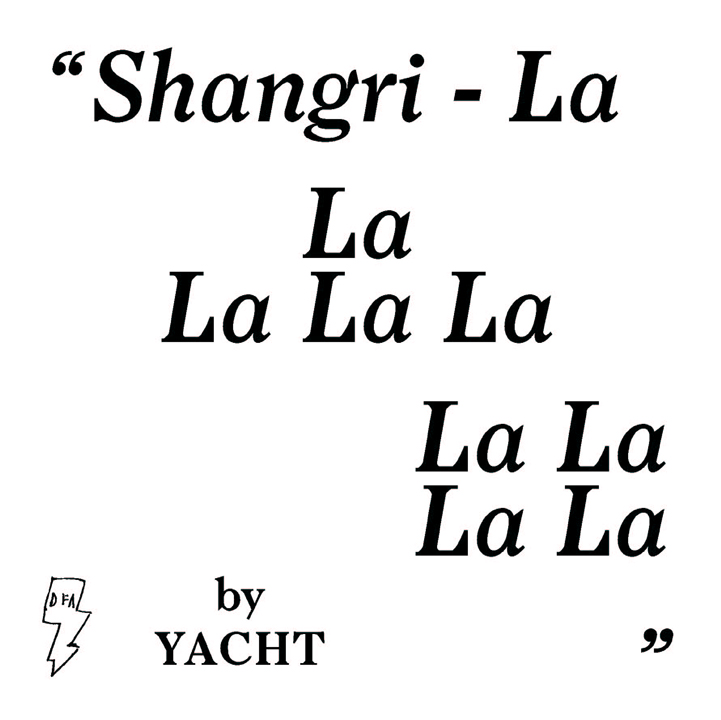Reviews
Souped up Deloreans and the future with YACHT

Shangri-la
YACHT
Release Date: Jun 21, 11
- 1
- 2
- 3
- 4
- 5
- 6
- 7
- 8
- 9
- 10
YACHT’s newest album, Shangri-la opens with a song titled “Utopia.” The idea of a Utopia seems to be ubiquitous in YACHT’s philosophy. And philosophy isn’t too strong a word here, either. On YACHT’s website, the act, now a duo, state that YACHT isn’t just a band, but a belief system too, and a business. It’s sort of like that oft quoted Jay-Z line where the Illuminati puppet, I mean rap artist, sets it straight for everyone, “I’m not a businessman, I’m a business, maaaan.” In short, YACHT’s concern is more than just making music. The music may be an agent, but the end is a philosophy and worldview. It’s an admirable effort too. One that seems like rarefied air in a musical climate where message and meaning are obtrusive themes relegated to 60s idealism and underground hip-hop.
The decision by YACHT to open up Shangri-la with “Utopia” is important. It sets the stage up for the themes presented through out the album. So Jonah Bechtolt and newly minted member Claire L. Evans aren’t just being quirky when Evans sings, “there’s nothing in the future/it’s up to us to make up.” It’s the group’s philosophy of motion and divergence. There is no future to amble into with staged indifference, its dependent on what you’re doing here and now, and it’s up to you to make the future something worthwhile to move towards.
That’s all nice and cute and fun for an ex-English major to indulgently riff on, but the question remains, how does the album Shangri-la sound? Though it may be an agent for YACHT’s ideas on reality and the like, the music is the foremost experience for the listener.
SO.
Shangri-La is a synth-pop album at heart. You can probably find a middle school yearbook photo of Shangri-La wearing DEVO energy dome hat. YACHT can recall 80s synth music with great clarity. At times, YACHT sounds reminiscent of the Talking Heads, a comparison that can be described as knee jerk. YACHT, however, is certainly 80s influenced. The new tech driven sounds of that era find themselves well put to use by the group.
But YACHT doesn’t simply borrow from the 80s, they pull together influences from all over and the result is something unique. “Tripped and Fell In Love” has a dance beat that gets mellowed out by an almost drone like synth-line. The melody is punctuating, not fluid or effervescent, but has certain directness to it. For an album dealing with electronic music the lyrics are very important. It’s like a folk album in that sense, aware of something they want to communicate and trying to pull it together through the music. “Holy Roller” opens with a sharp, two-note bass line, Evans voice is heavily reverbed, and the vocals whirl around the rhythm. Finger snaps are the only percussion for the first third of the song until it breaks into a charging chorus. “Don’t you worry about God up above/we’re gunna live life in love” sings Evans. The chorus breaks down into the warble of dubstep, and at another point in the song auto-tune is used and the percussion is sped up; the song detours into club mode, sounding like a range of sounds heard on any hip-pop single, all to be grounded again by the chorus.
There are certainly points on the album when YACHT’s overdoes it a bit, like in “Paradise Engineering.” The songs punchy bass line and jittery hi-hat and perhaps tongue-in-cheek PSA like warning of a too blissful world. As a concept it might work, but as a song it comes off as too contrived. But YACHT plays its hand pretty well through out the album, so a misstep here and there can be forgiven.